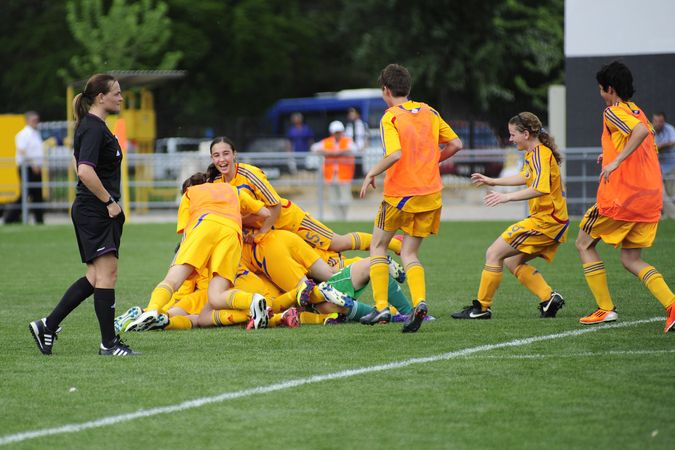Gender equality in Moldova

In the Republic of Moldova, considerate progress has been made in the recent years to advance gender equality. In 2021, the World Economic Forum Global Gender Gap Index scored Moldova 0.77 points or 28th out of 156 countries, marking an increase of 0.55 points since 2006.
Women have gradually but steadily increased their representation in leadership and decision-making processes, including from the most marginalized and vulnerable groups. In 2020, Moldova elected its first female President and, in 2021, registered the highest number of elected women MPs in the history of the country (40.6%). The representation of women in local government reached 22% in 2019. The Republic of Moldova ratified the Council of Europe Convention on preventing and combating violence against women and domestic violence, while laws and policies are being progressively amended aiming at removing main barriers to women’s labor force participation.
Despite this progress, gender inequalities persist, and gender norms and stereotypes still prevail in the society. Women politicians and female candidates in elections are subject to smear campaigns, hate, and sexist speeches during electoral campaigns. Women remain underrepresented in the labour market, due to persistence of patriarchal attitudes and deep-rooted stereotypes. Women from vulnerable groups (Roma women, women with disabilities, rural women) have even lower market employment rates, due to multiple and intersecting forms of discrimination and exclusion. According to the National Bureau of Statistics, in 2021, labor force participation of women was 36.4% compared to 46.5% for men, while employment rate for women was just 34.4%, compared to 44.7% for men. The employment rate for women aged 25-49 with at least 1 child (16 years and under) was 47.3% in 2020, while for women without children, the employment rate reached 60.5%.
Gender-based violence in Moldova is pervasive. In 2018, the OSCE led survey “Well-being and Safety of Women”, revealed that almost 40% of women in Moldova have experienced physical and/or sexual violence. Although progress is being detected in the past years, reporting of gender-based violence remains low compared to the overall prevalence, mostly due to stigma, but also due to lack of trust in existing legal and support institutions.
Pre-existing gender inequalities in Moldova have been exacerbated by the COVID-19 and ongoing triple crisis (economic, energy and refugee crisis) resulting from the war in Ukraine. Most refugee women, far from their family and social connections, face gender specific risks of gender-based violence, human trafficking, sexual exploitation and abuse.
In line with this context, UN Women Moldova has established strong partnerships with Parliament, Government, Civil society organizations, the private sector and is closely cooperating with UN Agencies in both development and humanitarian work.